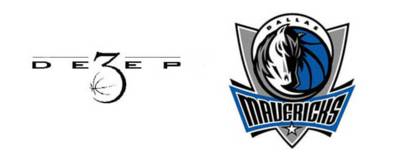Dallas Mavericks Lose Board Battle For "DEEP 3"
The NBA's Dallas Mavericks tossed up a desperation air-ball in their attempt to stop Applicant John Jacob Carlisle from registering the mark DEEP 3 and Design for various clothing items. Dallas Basketball Ltd. v. Carlisle, Opposition No. 91156064 (Nov. 2, 2004) [not citable].

Dallas opposed solely on the ground that Carlisle "did not have a bona fide intention to use his mark in commerce" when he filed the subject application. [Dallas had filed its own application to register DEEP THREE for clothing, but Carlisle had priority, thus ruling out the more common bases for opposition.] Dallas contended that Carlisle lacked an intent to use the mark in his individual capacity because he always had the intention of forming a business with his friends.
The Board granted Carlisle's motion for summary judgment and dismissed the opposition with prejudice, noting that "[b]y arguing that applicant did not have the bona fide intent to use the mark in a particular legal entity-type capacity," Opposer Dallas sought to add "an element that does not appear in the statute or the legislative history to Section 1(b)."
Carlisle filed his I-T-U application in November 2000, after talking with two friends, Jim Hajdukovich and Dan Meckel, about "how DEEP 3 would be a great brand name for clothing." His first sale occurred in December 2000, and he then developed his business with the assistance of friends and family. In January 2003, Carlisle formed Deep Three, Inc. with Hajdukovich and Meckel.
Opposer Dallas tried in vain to raise a genuine issue of material fact that would have precluded summary judgment, but Carlisle batted away every shot Dallas took. The Board found no genuine factual issue in view of Carlisle's evidence that he "did have the requisite bona fide intention to use the mark in commerce at the time of the application, has subsequently used the mark in commerce, and continues to use the mark in commerce."
Of particular interest is the Board's observation regarding Opposer's position and its potential effect on I-T-U applicants:
"[O]pposer's position effectively imposes a limitation on any intent-to-use applicant that may have hopes and plans for business development and licensing potential, that may seek business consultation advice or legal advice from third parties, and that may change its business type after filing an intent-to-use application. This limitation may certainly affect corporate subsidiary applicants which file intent-to-use applications and later, as may happen under some corporate business models, transfer the application or mark to the parent or to a related trademark holding company responsible for maintaining a trademark portfolio."

0 Comments:
Post a Comment
<< Home